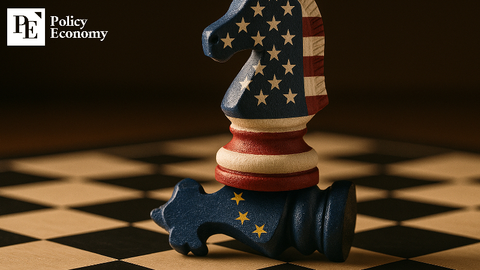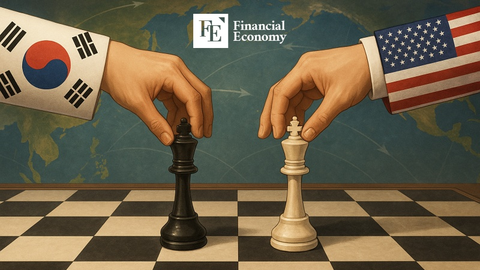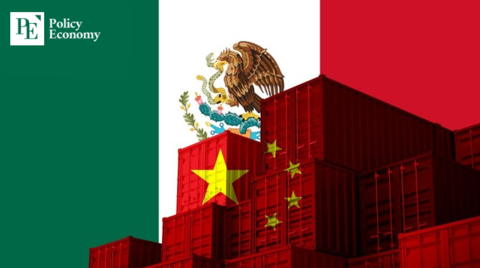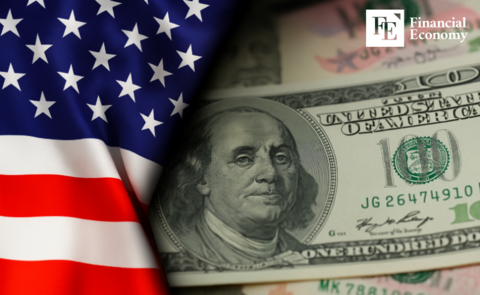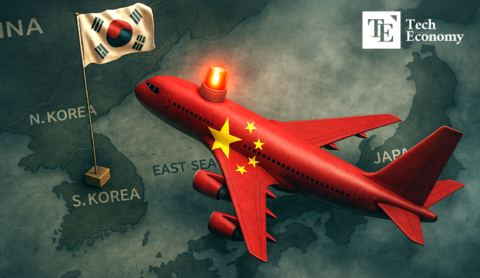EU announces €200-billion AI investment push
Input
Changed
The European Union has proposed an ambitious €200 billion investment project targeted at advancing the region’s artificial intelligence (AI) industry. European Commission President Ursula von der Leyen made the remark at the AI Action Summit in Paris, highlighting the need for Europe to catch up with global giants like the United States and China.
A Major Public-Private Investment Effort Von von Leyen underlined the EU’s pledge to contribute €50 billion from existing digital projects, while the remaining €150 billion is projected to come from private investors, technology suppliers, and industry players. This large-scale investment endeavor, known as the "EU AI Champions Initiative," brings together more than 60 European enterprises, including Airbus, Volkswagen, and Mistral AI, to drive AI-related economic growth in Europe over the next five years
One of the core projects of the strategy is the building of four AI gigafactories, with €20 billion committed to allow open and collaborative development of advanced AI models. The purpose of these gigafactories is to boost Europe's AI industry and guarantee that European businesses maintain their competitiveness in the rapidly changing global AI market.
Innovation and Regulation in Balance
Since its stringent regulations, like the recently passed EU AI Act, have been criticized for possibly stifling innovation, Europe has been under increasing pressure to relax its AI regulatory framework. Von der Leyen supported the rules during the Paris summit, stating that AI needs to be reliable and safe. She did concede, though, that in order to support AI development, procedures must be made simpler and administrative obstacles must be removed.
This view was mirrored by French President Emmanuel Macron, who pledged to streamline regulatory procedures and reduce red tape in order to increase the appeal of AI development in Europe. In order to illustrate how simplified laws could accelerate technological advancement, he cited the quick reconstruction of Notre-Dame Cathedral.
International Responses and American Criticism
The EU's drive for AI investment coincides with escalating regulatory disputes. Speaking right after von der Leyen at the meeting, U.S. Vice President JD Vance cautioned that overly stringent regulations could impede European AI progress. He argued that AI should be viewed as an opportunity rather than a threat and called for a regulatory framework that encourages rather than inhibits its development.
At the summit, the United States and the United Kingdom chose not to sign a declaration that focused on ensuring AI development is transparent, inclusive, and sustainable. According to the UK government, the document fell short in addressing national security and AI governance issues.
JD Vance, the vice president of the United States, stressed that strict regulation of AI could "kill a transformative industry just as it's taking off." Seeing AI as a strategic and economic opportunity, the Trump administration has refocused attention from safety regulations to accelerated AI development. Experts, including Stanford's Russell Wald, see this as a definite change in the U.S. AI policy, where securing quick advancement and preserving technological leadership take precedence over safety concerns.
Disapproval of the European Regulatory Framework
The EU's AI Act, which unveiled a comprehensive framework governing AI in August, was met with suspicion by the United States.
Vance raised concerns about content filtering and regulatory overreach in his argument that AI should stay "free from ideological bias" and not be used for "authoritarian censorship."
Instead of enacting restrictive laws that might impede advancement, the United States wants its allies in Europe to promote a more open and competitive AI environment.
Divergence from Global Governance Proposals
The U.S. did not provide a direct explanation but showed reluctance to commit to a global AI governance framework, possibly to retain control over its own policies.
The declaration included provisions for a public-interest AI platform and observatories to monitor AI’s labor impact, which might be seen as constraints on market-driven AI progress.
France’s President Emmanuel Macron’s call for Europe to be a leader in AI—urging investors and firms to "choose Europe over the U.S. and U.K."—may have influenced U.S. resistance to a European-led initiative.
Alignment with the U.K.’s Stance
The U.K. also declined to sign the declaration, citing concerns that it lacked "practical clarity on global governance" and failed to address "harder questions around national security."
The U.K.’s AI industry association, UKAI, argued that the energy demands of AI must be balanced with environmental commitments, another point of contention in the Paris summit.
The U.K. held its own AI Safety Summit in 2023, which took a different approach, and likely did not want to undermine its independent AI governance initiatives.
Strategic & Economic Considerations
The U.S. sees itself as the worldwide leader in AI and wants to mold the industry with a pro-growth attitude rather than tight governance frameworks.
The government may also want to retain flexibility in AI policy, particularly as the AI industry is crucial to U.S. economic competitiveness and national security.
Conclusion: The U.S. choice not to join the Paris AI proclamation accords with its wider approach of favoring innovation over regulatory constraints, avoiding European-style AI governance, and keeping national sovereignty over AI policies. By pursuing a more market-driven and competitive AI environment, the U.S. hopes to assure its continued leadership in the area without committing to international frameworks that would hinder growth.
AI and Public Supercomputers for Good
Von der Leyen also declared that AI researchers and startups would have access to Europe's public supercomputers as part of the EU's initiative, guaranteeing them vital computing resources. She emphasized the need for cooperation as well as competitiveness in the AI industry, saying, "We want AI to be a force for good."
Current AI, a new public-private partnership involving nations like France and Germany as well as tech behemoths like Google and Salesforce, was also introduced during the summit. The initiative, which has a $400 million initial investment, intends to create open-source tools, enhance data accessibility, and support AI projects of public interest.
The European AI Road Ahead
The EU's €200 billion investment plan demonstrates its resolve to take a leading position in the global AI race, as AI becomes more and more important in both economic and technological advancement. Even though there are still regulatory obstacles to overcome, the bloc's readiness to adjust and encourage innovation through joint investments may make Europe a major hub for artificial intelligence in the years to come.
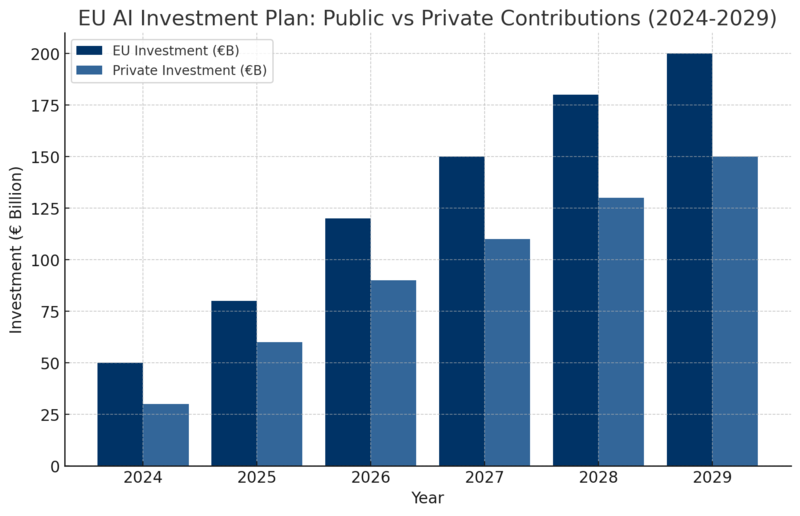
In order to keep Europe competitive and uphold its commitment to ethical AI development, this initiative will need to strike a balance between innovation and responsible AI governance. The U.S. rejected to join the AI proclamation at the Paris AI Action Summit partly owing to worries about excessive regulation, potential constraints on innovation, and ideological control over AI content.


